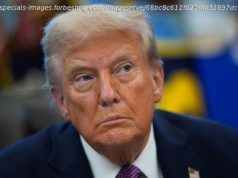First priority is for US and North Korea to continue dialogue and establish a clear road map for removal of weapons
While North Korea and the United States have agreed in principle to the “complete denuclearisation” of the Korean peninsula, how the two sides now make progress on the commitments they made in Singapore is far from clear, analysts said.
The priority for Washington has always been the “complete, verifiable, and irreversible dismantlement” (CVID) of North Korea’s nuclear weapons programme. Pyongyang, meanwhile, is more concerned with the preservation of Kim Jong-un’s regime and the creation of economic development opportunities.
Su Hao, a professor at China Foreign Affairs University, said now that the wheels were in motion on the denuclearisation issue, the devil would be in the detail.
“There are likely to be two forks in any future negotiations,” he said. “And the establishment of a peace regime on the Korean peninsula will be built upon the precondition of denuclearisation.”
Despite the historical significance of the meeting between Kim and US President Donald Trump, the joint statement it yielded contained few specifics. Trump said after the meeting that North Korea was no longer a nuclear threat, though exactly how he could justify that claim remains moot.
Since the early 1990s, the reclusive Communist regime has made repeated pledges to get rid of its nuclear arsenal – usually in exchange for economic concessions – but has reneged on every one of them.
With only a flimsy deal so far agreed, Wang Sheng, a professor of Korean affairs at Jilin University in northeastern China, said that it was now vital for the US and North Korea to keep talking.
“There needs to be continuous diplomatic gestures [between the two sides] on different levels,” he said.
In the initial stages of implementing the joint statement, the talks would involve only the US and North Korea, he said, but other players, including China, would play their part later, he said.
US Secretary of State Mike Pompeo will lead the negotiations on behalf of Washington. After meeting his South Korean and Japanese counterparts in Seoul on Wednesday, he said the US still hoped to see a “major disarmament” by North Korea by the end of 2020, and that he was “confident” Pyongyang understood there would be in-depth verification.
Li Bin, an professor of international relations at Tsinghua University in Beijing, said, however, that Washington and Pyongyang had yet to agree a precise definition of denuclearisation or set a time frame for it. Progress would be made “step by step”, he said.
Yun Sun, co-director of the East Asia Programme and Director of the China Programme at the Stimson Centre, said that the security guarantees North Korea wanted could mean “anything from the negotiation of a peace treaty to a US commitment to no invasions and no regime change”.
Sung Chull Kim, a professor at the Institute for Peace and Unification Studies at Seoul National University, said Pyongyang would seek rewards for any concessions it made.
“It is likely that North Korea will ask for compensation at each stage of denuclearisation,” he said. “That could be the lifting of sanctions or security guarantees.”
Pyongyang, with the support of Beijing, has said it wants a “phased and synchronised” approach to denuclearisation.
“For example, the establishment of a US representative office in Pyongyang might be the next step in the removal of its warheads,” Sung said.
It would be at this stage that other countries would start to play their roles, especially with regards to economic support, he said.
Trump wants South Korea and Japan to be “very generous” to finance the future denuclearisation process, as the North Korean economy has been crippled by years of isolation and strict sanctions.
“South Korea, which obviously is right next door, and Japan, which essentially is next door, they’re going to be helping them,” Trump told a press conference after the summit.
China was also identified as a major player in the process when in April the leaders of North and South Korea agreed in the Panmunjom Declaration to pursue a peace agreement that would bring a formal end to the Korean war, which was halted by an armistice in 1953.
Christopher Hill, the US representative between 2005 and 2007 to the six-party talks – which failed to find a way to remove the North Korean nuclear threat – said that the current diplomatic efforts to resolve the North Korea problem could be the last.
“If this fails again, I think we are getting to a point where diplomacy will not be given any more chances,” he said. “We have to look at much more aggressive American approach.”






